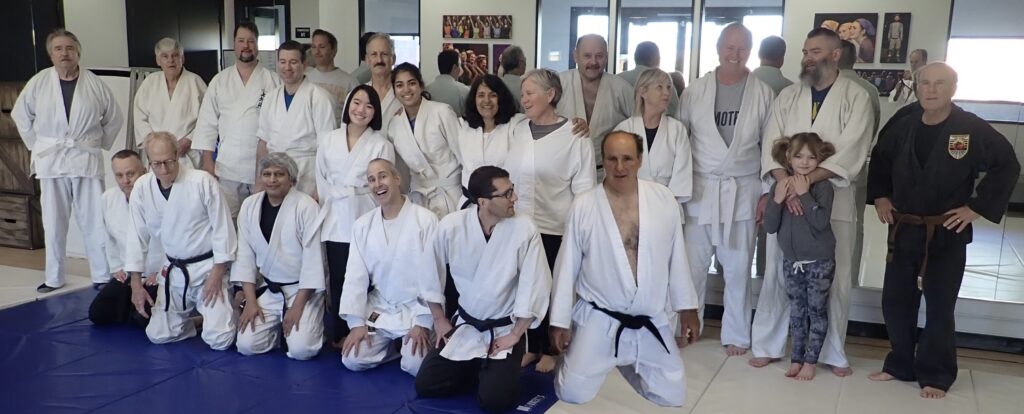
Lately, I’ve been immersed in contemplation regarding the unique characteristics of every dojo, and I’ve come to realize that each carries its own distinct ego. Some dojos may boast about having the ultimate solution to any attack, while others pride themselves on their athleticism or the effectiveness of their techniques.
Initially, I believed that the ego of Aikido of Alamo stemmed from our students ability to endure and navigate my moments of gibberish and lack of clarity. However, my perspective has since evolved, and I now perceive our collective ego as something entirely different.
For us at Aikido of Alamo, our ego is centered around our capacity to fully embrace and engage with challenging students. We recognize that these students are not only here to learn from us, but they also offer us an invaluable opportunity for growth. In Aikido, progress is not limited to individual advancement; it extends to the development of the entire community.
When I talk about “challenging” or “difficult” students, I don’t mean anything derogatory about the student. Students can pose a challenge to a teacher in a variety of ways that in no way reflect on the value of the student. In that sense, I mean only to point out the challenge to the teacher, and I believe it’s the job of a good teacher to embrace those challenges and help students to overcome them.
By willingly immersing ourselves in training with all learners at all levels, regardless of the degree of their challenges, we acknowledge that their presence enriches our understanding and refines our skills. Through this mutual exchange of knowledge and experience, our ego undergoes a profound transformation. It evolves into a humble and inclusive entity that values the collective growth of everyone involved.
Embracing the difficult student reflects our commitment to continuous learning and our dedication to evolving as practitioners of Aikido. As I conclude this reflection, I realize that there could be nothing more inherently Aiki than fostering a dojo where everyone feels welcome, valued, and supported in their development.
